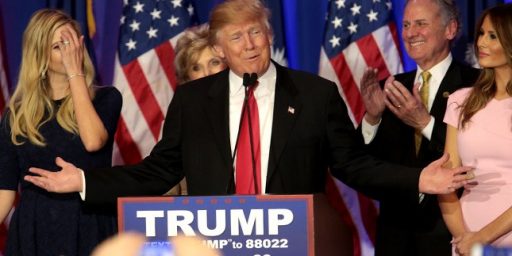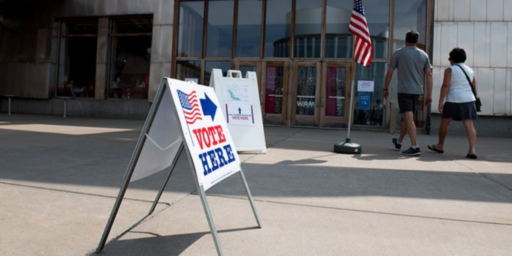The Vanishing Center
John Fund notes that several moderate incumbents of both parties have been defeated or face tough challenges in this year’s primaries, further signaling a polarized political culture.
With Congress so evenly divided, the pressure on individual officeholders to back their party’s prevailing positions on issues has become more intense. With party primaries increasingly featuring low turnout that is dominated by ideological voters–as this year’s Democratic presidential contests were–you can expect more primary challenges against dissenters in the future.
The argument against such primary challenges is that moderate voters in general elections don’t want candidates who deviate too much from the mainstream. But that calculation doesn’t matter as much anymore, as more and more districts are gerrymandered to eliminate competitive elections. Even in competitive seats, if both parties nominate ideologues, voters who are neither conservative nor liberal may not have much choice but to go either right or left, since the middle is fast disappearing.
Interesting.






I have always said the country is not “polarized” as some would have us believe, but the case is that the democrat party has been “marginalized”.
Marginalization is what drives their appartent desperation (hate?)in attacking President Bush even when it clearly works against the country’s best interst.
If it were otherwise, they could stand to civil discourse and loyal opposition historic to our system. (I admit there have been times past when one party or the other were over the top, but even in those eras, politics tended to stop at the water’s edge.)
—